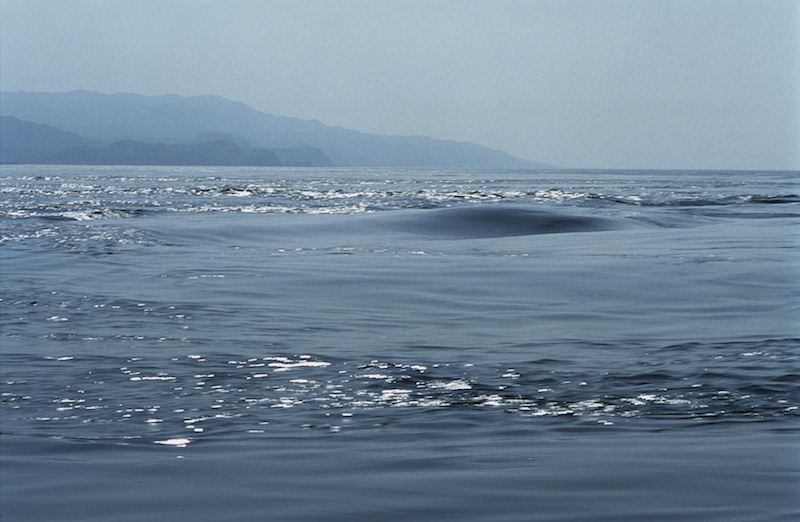
The whirlpool of Corryvreckan
 Just off the west coast of Scotland, in a narrow neck of sea between the north tip of Jura and the southern coast of Scarba, lies the third largest whirlpool in the world: the Corryvreckan.
Just off the west coast of Scotland, in a narrow neck of sea between the north tip of Jura and the southern coast of Scarba, lies the third largest whirlpool in the world: the Corryvreckan.
This maelstrom has been known and revered by mariners ever since humans first ventured into the rich and fertile waters of the Firth of Lorn. Irregularities in the sea bed, which include a 219-metre hole and a basalt pinnacle that rises to within 29 metres of the surface, cause violent eddies and whirlpools when the incoming tide is forced through the narrow Gulf of Corryvreckan.
The strongest whirlpools form on the incoming tide, because the flow of water up the Firth of Lorn has already been squeezed through the Sound of Jura. On the ebb tide, water passes fairly smoothly through the Gulf towards the open sea.
Strong winds and spring tides accentuate the effect; when the sea is being whipped by a westerly gale, a standing wave up to 15 feet in height can be formed, and the noise of the turbulence can be heard up to 10 miles away. The tidal flow can reach speeds of up to eight and a half knots.
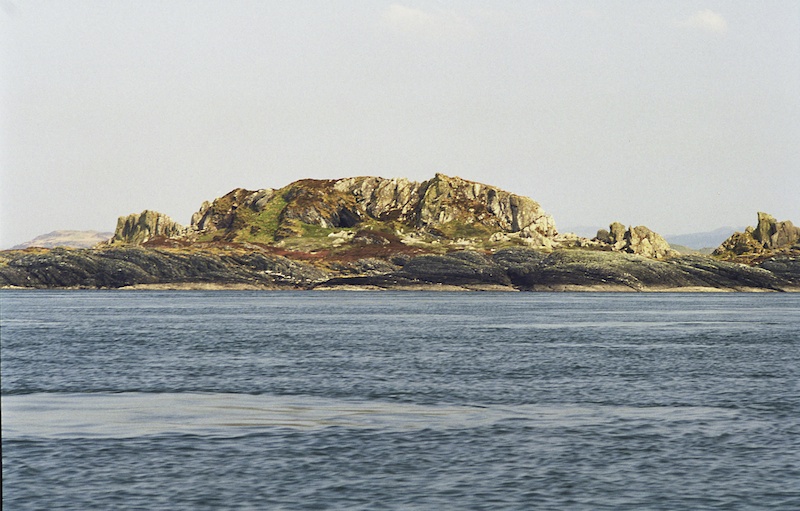 Perhaps not surprisingly, many legends have been woven around the swirling waters of the Corryvreckan. The best known story involves a Norwegian or Danish prince – sources differ as to his nationality – by the name of Breakan (also spelled Breckan or Bhreacan). Breakan was in love with a girl from a noble family; in fact, some sources claim she was the daughter of the Lord of the Isles. To gain the consent of the girl’s father, Breakan agreed to a test of courage which involved anchoring his boat for three nights in the Corryvreckan.
Perhaps not surprisingly, many legends have been woven around the swirling waters of the Corryvreckan. The best known story involves a Norwegian or Danish prince – sources differ as to his nationality – by the name of Breakan (also spelled Breckan or Bhreacan). Breakan was in love with a girl from a noble family; in fact, some sources claim she was the daughter of the Lord of the Isles. To gain the consent of the girl’s father, Breakan agreed to a test of courage which involved anchoring his boat for three nights in the Corryvreckan.
Breakan sailed back to his homeland and consulted the three Wise Men of Lochlan on how he could win this challenge. The Wise Men were obviously of an imaginative disposition, and they advised him to have three anchor cables made: one of hemp, one of wool, and one that had been spun from the hair of maidens.
Equipped with the prescribed cables, Breakan returned to Corryvreckan and bravely anchored his boat. On the first night, the hemp rope snapped, but the vessel was spared. During the second night, the wool cable was broken, but again the prince survived. On the third night, however, a violent storm swept across the sea and the last rope, whose strength lay in the purity of maidens’ hair, was torn apart. Too late, Breakan realised that the maidens were perhaps not as virtuous as they’d led him to believe, and both he and his boat were engulfed in the whirlpool. A crewman and Breakan’s dog swam to safety, and later recovered the prince’s body; according to the legend, he was buried in The King’s Cave on Jura.
Another myth, this time of Scottish – or perhaps Irish – origin, tells of the Cailleach, who is known variously as a wise woman, the ‘veiled one’, or the hag goddess of winter. In autumn the Cailleach washed her ancient plaid of wool in the Gulf of Corryvreckan. The tumultuous waters of her ‘washtub’ made a great roar and heralded the first storms of winter. When the plaid was clean, it became pure white – in fact, a covering of snow – and the Cailleach spread it out to dry on the mountain tops.
There are several boat operators who are experienced enough to navigate the whirlpool in calm weather. About 10 years ago we went on one of these, departing from Ardfern. Although it was a slack tide we were struck by the strange movements in the sea: the surface was irregular and uneven, as though spilling over very shallow steps, and in places it appeared to be welling up, like hot water in a saucepan, and boiling over into rapid whirls and eddies.
 As we ventured through the narrow strait, the skipper cut the engine for a few seconds and we waited and watched. A standing wave appeared about 100 yards away, growing in height, curling but never breaking. Smaller versions began to form on both sides of the boat, and within seconds the engine was revved up and we were whisked away, out of harm’s reach.
As we ventured through the narrow strait, the skipper cut the engine for a few seconds and we waited and watched. A standing wave appeared about 100 yards away, growing in height, curling but never breaking. Smaller versions began to form on both sides of the boat, and within seconds the engine was revved up and we were whisked away, out of harm’s reach.
Local people have some hair-raising stories to share, including a local fisherman who suddenly found himself surrounded on all sides by walls of water, before both he and his boat were spat out of the vortex, luckily intact.
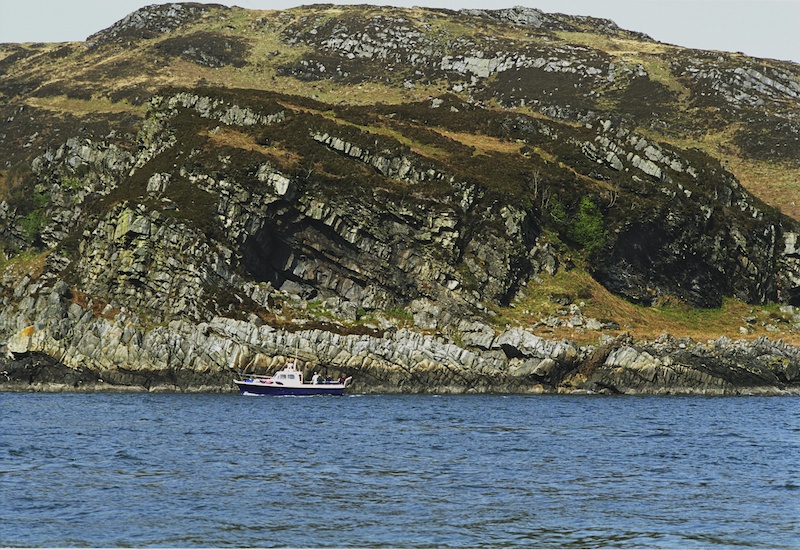
In 1947 the writer George Orwell, who used a cottage on the north coast of Jura as a retreat when he was working on a novel, attempted to cross the Gulf in a small boat along with his son and two companions. Orwell misjudged the tides and the party were caught in the pull of a strong current which nearly wrecked their boat. Having lost the engine, they managed to paddle to safety on Eilean Mor, a tiny rocky island, and were later seen and rescued by a passing fisherman.
According to reports, Orwell’s brother was the first person to swim across the Gulf.
The waters of the Firth of Lorn are extremely rich in marine life, and the shoals of fish attract cetaceans such as porpoises and minke whale as well as many species of sea birds. Basking sharks can sometimes be seen passing through in the summer, their jaws gaping wide as they feed on plankton.
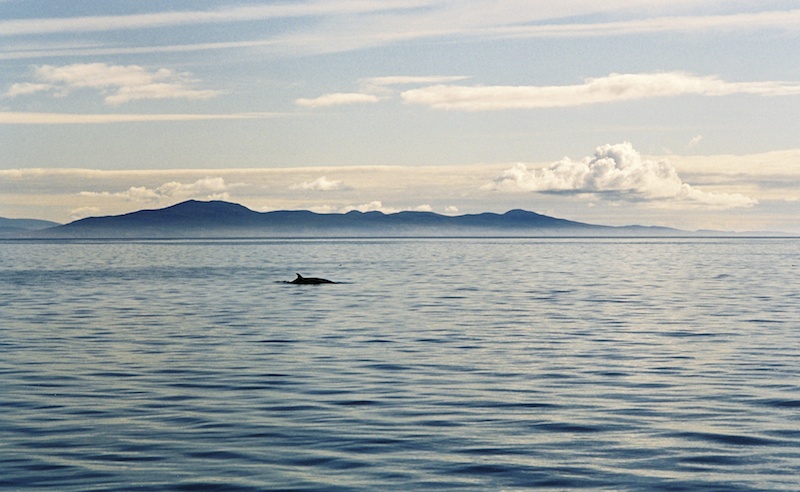
Some years ago we took a wildlife-watching trip up the Sound of Jura from the island of Colonsay. The weather was warm with just the hint of a breeze, and the sea was like a millpond. The cliffs of Mull were blue in the distance, and shearwaters were dipping and skimming all around us. As we sailed up the west side of Jura towards Scarba we were thrilled to see porpoises and at least two minke whales feeding around the boat; later, a pod of common dolphins rode the bow wave, taking it in turns to lead the way and allowing us amazing views of their faces and side stripes. The magic of those encounters is still fresh in our minds.

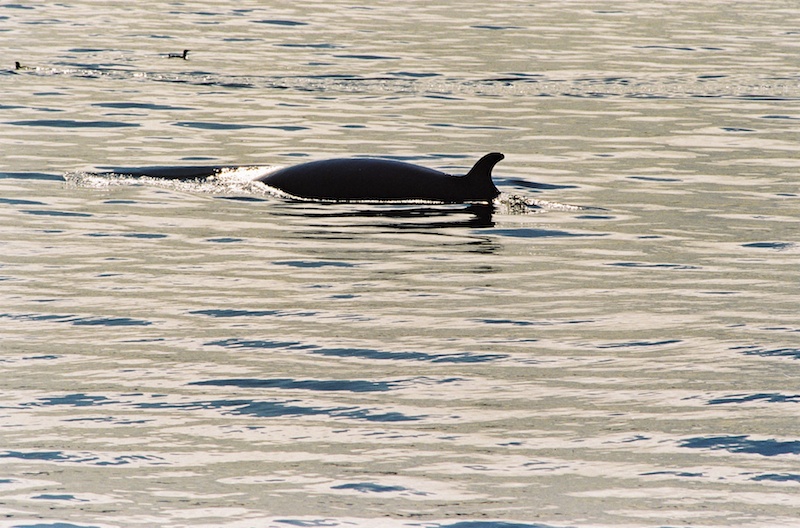
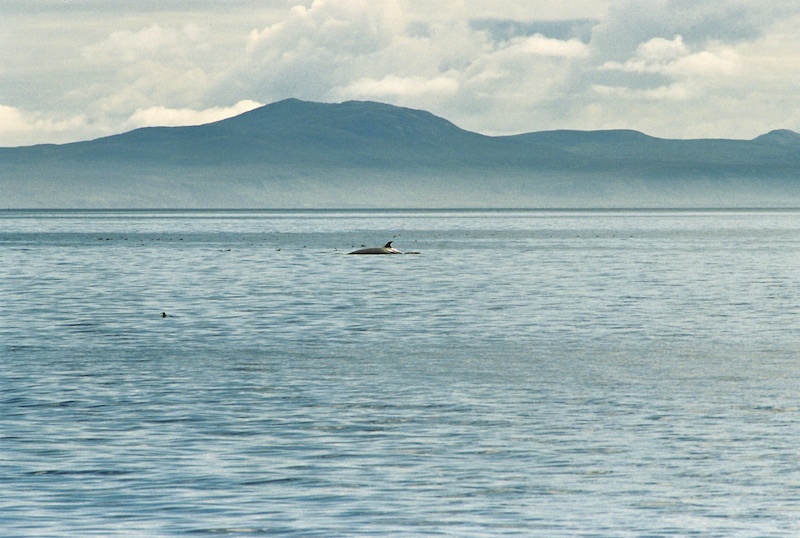
More information:
You can find more information about the Corryvreckan and its legends at www.whirlpool-scotland.co.uk.
Local charter boat operators include Farsain Cruises, Craignish Cruises and Seafari.
All photos copyright © Colin Woolf



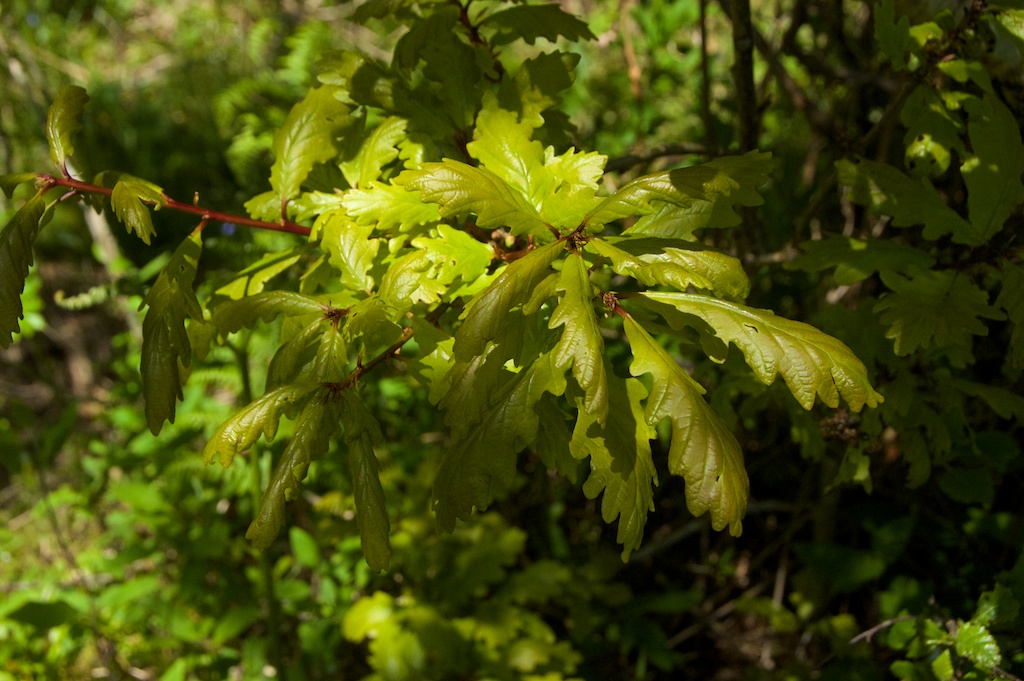

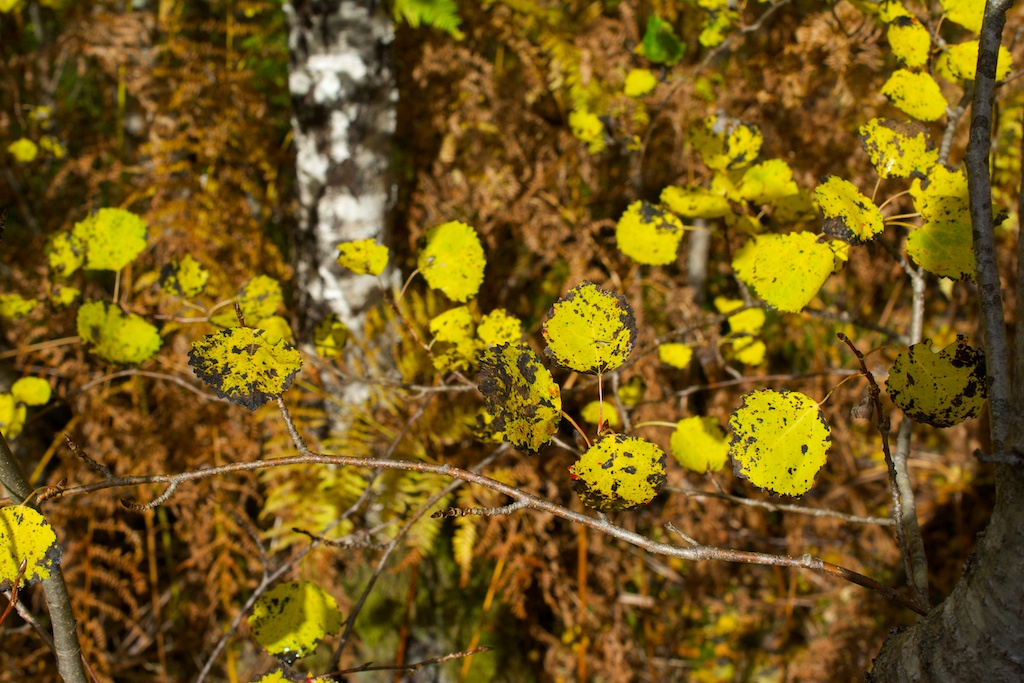
105 Comments
Homestead Ramblings
It always amazes me at what things there are out there in the world that Mother Nature has created, all so varied and different. Neat that I can view them via you. Thank you for that treasure!
Jo Woolf
Really glad you enjoyed it – thank you!
tearoomdelights
What a very full and rich post! The Corryvreckan whirlpool is a most interesting phenomenon. I’ve only seen it second-hand but I would like to do what you did and take a little boat trip out to it, your excellent photos have renewed my interest in it. I gasped when I read about all the cetaceans you saw on one day, how incredible! I can well imagine the memory staying with you, I still feel a thrill of excitement when I remember seeing cetaceans myself, for me it feels almost indescribably special to see them in their natural habitat. I remember seeing a pod of minke whales off Shetland swimming close to the boat I was on and I felt this strong and utterly ridiculous desire to jump into the water to be with them. I didn’t know about George Orwell’s brother, or about that close scrape in a little boat. As you always do so well, you’ve brought the most fascinating stories and legends to your post and I really enjoyed it.
Jo Woolf
Thank you very much Lorna, that’s wonderful praise. I’m glad you enjoyed reading about the Corryvreckan – I would love to go back and experience it again, actually. We were so lucky that day, to see the dolphins and minke whales. It felt as if they were coming to see us out of choice. It sounds as if you’ve had some great experiences yourself, on board vessels in the North Sea – I’m not sure I share your instinct to jump in with minke whales but I know that Verity would have done so without hesitation!
tearoomdelights
I’m sorry to say I haven’t seen many cetaceans. The trouble with the sort of work I’ve been doing is that it produces loud noises in the water and it’s been suggested that cetaceans don’t like that, although in fact they often draw towards it in places like the Gulf of Mexico, so no-one’s quite sure what’s going on with their reactions. I’ve never seen dolphins, which is something I hope to remedy one day because I think they’re incredible creatures. The first cetacean (a porpoise) I ever saw was from the ferry on the way to Lewis, but I think the minke whales I saw just off the side of the boat made the biggest impression because they were so close. One of my biggest dreams is to see Orcas in the wild, and I was quite envious recently when a friend who was working off Shetland rang me to say he’d seen a pod of them not far off his boat!
Jo Woolf
I’d love to see Orcas too! A friend of ours saw some in Shetland a few years ago, from the shore – a pod came into the harbour. We had some amazing sightings of dolphins in Oban Bay two years ago – there was a pod of them, youngsters as well, playing around the boats. And Leonie is perhaps the luckiest – from her kayak, she has had some amazing experiences of dolphins jumping out in front of her.
tearoomdelights
Wow, that would be amazing seeing them from a kayak, you’d be so close to them! I’ve just remembered that I have in fact seen dolphins near Aberdeen harbour, but they were quite a long way off, which is why I think it hasn’t made a big impression on me. I’d love to see them close-to. I used to drive over the Kessock Bridge at Inverness quite a bit and always hoped to see them there but so far no luck. I think Shetland is one of the best places to view cetaceans in the UK.
monmouthjubileeyouth
Sailed through it a couple of times…woh betide it if you get the timing wrong ! What a beautiful spititual place when the sun’s shining.
Jo Woolf
That’s very true! It is the most beautiful place.
Akanksha
Loved the photos and the historical connection
Jo Woolf
Glad you enjoyed it – thanks for the comment!
copperknob
I had only vaguely heard about this phenomenon, so thank you for an interesting post. When I had an exhibition of my Hebridean photographs at the Royal Photographic Society in Bath I invited a group of Scottish dancers called Corryvreckan to the Private View. Now I know what it’s all about!
Jo Woolf
Thanks for your comment – glad you enjoyed the post!
marialla
WHAT GREAT SHOTS OF THE WATER AND THE WHALES. SO BEAUTIFUL!!!!
marialla
THANK YOU SO MUCH FOR PRESENTING SUCH FANTASTIC SHOTS OF THE OPEN WATER AND OF THE DOLPHINS. THEY ARE SO VERY AWE-INSPIRING. !!
Jo Woolf
Thank you very much (and for your previous comment) – glad you liked the feature.
markalan
Nice job! Great photos and the bit of history of fantastic!
Jo Woolf
Thank you very much, Mark.
christine
Beautiful and treacherous. Congrats on FP!
Jo Woolf
It certainly is both beautiful and treacherous. Thanks for your comment!
Juraj
Lovely post and nice images!
Jo Woolf
Thank you very much!
segmation
Hi Jo, Thanks for sharing Corryvreckan these awesome digital photos. I heard that this area is currently being considered for Special Area of Conservation status! http://www.wordpress.segmation.com
Jo Woolf
That could well be true – it certainly deserves that status. Thank you very much for your comment!
abichica
breath taking pictures.. 😀
Jo Woolf
Thank you!
Sarah D.
Fascinating to learn about this, and thanks for the look at your wonderful pictures!
Jo Woolf
Glad you enjoyed it – thank you for commenting!
Mikalee Byerman
These are spectacular images — LOVE the dolphins! 🙂
Jo Woolf
Thank you, Mikalee! Much appreciated.
mshyde
Reblogged this on World According to Mshyde and commented:
This is awesome!
Jo Woolf
Thank you very much, and for re-blogging it!
Pedro Alvarez Fotografía
Unas imágenes preciosas.
Jo Woolf
Gracias!
Julie Gomez
Wonderful story Jo, and congrats again for another Freshly Pressed!
Jo Woolf
Thank you very much, Julie!
dhphotosite
Super photos Jo! I never knew these things actually exited, but thanks to you and you fantastic history lesson, I do now! The video you mentioned really brought your words to life!
Jo Woolf
Thank you very much, David – glad you enjoyed reading about it. The west coast is a really beautiful and amazing place.
FMR
absolutely beautiful images. i already wanted to visit Scotland and you are making it very difficult for me… i want to go!
Jo Woolf
Oh dear! It’s a beautiful place. It has rained here pretty much since the end of March, if that makes it any better!? 🙂
goprolist
Wonderful!
Jo Woolf
Thanks! 🙂
betunada
you really do the research, especially on something (which i dare say) hardly anyone has ever heard of! — and make it interesting (with photos to boot, especially for those of short-attention spans, like me!). george orwell, huh?
3rd-largest? but is it the “most enduring”?
Jo Woolf
Thank you! Glad you enjoyed it. Most enduring whirlpool – I have no idea! Interesting question.
thoughtofvg
didn’t think i would see a blog about corryvreckan! Its a wonderful spot-sailed through there several times. Of course at points where it isn’t too lively 🙂
Jo Woolf
Our daughter has kayaked through the Gulf too, guiding trips around Jura & Scarba. You need to know the tide times and weather patterns, and be able to read the currents. The coastline is just beautiful.
karolinekls
Beautiful pictures!
Jo Woolf
Thanks, Karoline!
heartlandroad
Wow! I’d love to visit Corryvreckan. My Mum and Dad have been out there on the Waverley.
Jo Woolf
The coastline around there is just beautiful. The Waverley still sails around the coast, and is very popular. Thanks for your comment!
Constance V. Walden
Very interesting. Thanks for sharing. Connie
http://7thandvine.wordpress.com/
Jo Woolf
Thank you, Connie!
writingforeverwherever
That is so cool.
Jo Woolf
Thank you. I love the legends!
colonsaycroftess
I really enjoyed reading this. I live on Colonsay and have often sailed past the Corryvreckan on the Calmac ferries – I’ve never been able to see anything probably due to the miserable weather. After reading your article I’ve promised myself that one day I’ll go and have a look – but I won’t get too close! Great pictures too.
Jo Woolf
What a lovely place to live – we really enjoyed our time there, it’s a beautiful island. I hope you get an opportunity for a boat trip soon! Thanks for your comment.
amelie88
Just another reason to go back and visit Scotland! I didn’t even know there were naturally occurring whirlpools out in the ocean!
Jo Woolf
It seems there are quite a few but I don’t know about them all! I love the legends attached to the Corryvreckan. Thank you for your comment!
Richard McCargar
Quite interesting, and wonderful photos.
Jo Woolf
Thank you, glad you found it interesting.
superbenefitnews
Thanks Jo – your images really hilight the description of the area – love the “legends”
Jo Woolf
So do I – thank you very much for the comment.
The Retiring Sort
Fascinating, wonderful post! Another wonder place to explore in Scotland! Thanks for this wonderful info – and congratulations on being Freshly Pressed!
Jo Woolf
Scotland has so many places to explore, it’s amazing! Thanks very much for your comment.
Po' Girl Shines
God created and awesome world!
Jo Woolf
It certainly is awesome. Thanks for commenting.
yourbrainonbooks
I love learning about local folk tales and legends. Thanks for passing this one about Breakan along!
Jo Woolf
Glad to hear that you enjoyed it, and thank you for commenting.
antarabesque
Cool, bucket list!
Jo Woolf
Glad you’re inspired to visit! Thanks for the comment.
ena
The majesty of nature never ceases to amaze me. I’ve seen Orca on the west coast of Canada and Wright Whales and porpises and dolphins on the East Coast of Canada. Just like you, those are trips I’ll never forget.
Jo Woolf
Those sound amazing experiences. Thank you very much for your comment!
Alyssa
Love the photos, especially the information given about the third largest whirlpool. Really awesome post!
————-
colorado springs divorce lawyers
Jo Woolf
Thank you, Alyssa.
A Londoner from Afar
Beautiful pictures. I’ve been twice in Scotland and it is a lovely place to visit. Stunning images.
Jo Woolf
Thank you! It is a beautiful country. Thanks for your comment.
element90
This whirlpool features in the Powell and Pressburger film “I Know Where I’m Going!” (1945) but only as a special effect. It’s great to see pictures of it for real.
Jo Woolf
Thanks for that – I haven’t seen the film, but I’ve heard of it.
Stephanie Jill Rudd
Reblogged this on HighlandMusings and commented:
An amazing phenomenan; enjoy this blog post which capture so much wonderful detail.
ratchet7764
This is so cool! I’ve always been fascinated by whirlpools and other sorts of maritime irregularities. You seem to be very knowledgeable about the topic. Maybe you could do a post on rogue waves? Looking forward to the next post!
Jo Woolf
I’m not sure I know enough about the sea to write about rogue waves, but I’m glad you enjoyed it – thanks for your comment!
backpackerina
No wonder this place has so many legends, it seems unbelievably striking. I loved learning about it, thanks for the great post!
Jo Woolf
Thank you – glad you liked it so much!
ladyfromhamburg
Enjoyed your blogpost very much! So fascinating to read about it (love all the details and thanks for the additional links you mentioned). Your photographs are really stunning! Thanks so much for sharing and telling. Would love to go there to see it with my own eyes ^^
Jo Woolf
Thank you for your lovely comment. The islands off the west coast are incredibly beautiful and I think stories like these make them even more special. I hope you can visit sometime!
ladyfromhamburg
I certainly will do so and just started to follow your blog [;)]
Best wishes from Hamburg!
Michèle
Jo Woolf
Thanks for following, Michele! Best wishes to you too.
Jennifer Avventura
Beautiful photos and such an amazing moment. I don’t think I’ve ever seen this theme, I love it! Your background colour is awesome!
Jo Woolf
Thank you very much for your comment on the post, and on the theme too – it’s the Lifestyle theme, which is good for a magazine-type layout.
wedgeintheround
Amazing! We love visiting Scotland- been to long since we’ve done so. Thanks for educating me on this!
Jo Woolf
Scotland is beautiful, and there are still so many places we’d like to visit, too. Hope you make it here soon! Thanks for your comment.
abhishekupadhyay
like 2 visit it smday
Jo Woolf
Definitely!
beautyjunkme
I really enjoyed this – thanks! I’ve often thought about doing the Corryvrekan swim (but I’m still too scared!) and it’s been great learning some of the geography of the pool. Thanks! Cat x
Jo Woolf
That sounds like a challenge! The best of luck if you ever attempt it. Thank you very much for your comment!
rinceagusgra
I loved reading the history of the gulf. And your photos are stunning! When I go to Ireland, I’m definitely going to take a detour to Scotland and check this place out 🙂
Jo Woolf
That’s a great idea. It’s only a (relatively!) small step across the water! Thanks for your comment, much appreciated.
Ron Stempkowski
Fascinating. Thanks for sharing.
Jo Woolf
Thank you very much, Ron.
Romantic Asian Guy
What gorgeous photos! Your writing style is lovely. Especially nice is the bit of history you provide. What a surprise it must be to see those whales in their natural habitat!
Jo Woolf
Thank you very much for the compliment, and I’m very glad you enjoyed the article. Yes, it was an amazing encounter – the kind that stays with you always.
Garden Chair
Very interesting post and wonderful photos!
It seems to be a quite dangerous place. Good you survived!!! 😉
Regards
Garden Chair
Jo Woolf
Thank you very much! The Gulf is well respected by local boat operators and yachtsmen (and kayakers!) – it’s essential to know the tides and pay attention to the weather forecast.
zkhei
the shot with the minke whale …stunning!
Jo Woolf
Thank you! The conditions were just perfect.